Tech Culture Shock: From America to the South Pacific, and Seattle to Chicago

I’ve spent the past two decades in tech, mostly as a developer or system administrator. In that time, I’ve worked in a variety of different markets, in six different cities, across three different countries. There are, of course, a number of similarities between companies, no matter where you go. But I also found a lot of oddities that were specific to certain regions and markets. People who only work in one market could get used to an IT mono-culture, and may not realize how things operate differently for their counterparts on the other side of the country, or the planet. In this post I will start with my experiences in Chattanooga, Tennessee and Cincinnati, Ohio. I’ll also talk about international markets and tech scenes from my experience in Melbourne, Australia and Wellington, New Zealand. Finally I’ll cover my return to the West Coast working in Seattle, Washington, and my current scene in Chicago, Illinois.
The American South and Midwest

I started out in the Southern United States, where I completed my undergraduate and graduate degrees in Computer Science. I worked for four different companies in Tennessee. My first role was in a small shop with a three person team where I did nearly everything: call center workstation setup, development, server administration, network and firewall administration, etc. From there I moved on to more specialized roles including junior development, a year of call center support, and eventually I became a senior software engineer. After graduate school, I spent the next few years in Cincinnati. There I worked a similar spectrum of jobs including contract work, consulting at a staffing company, work for the education/non-profit sector, and even a startup.
You could say Tennessee and Cincinnati are where I cut my teeth and built up the initial base of experience that would carry me on for the next several years. I don’t have much to say about IT culture in the South and Midwest, except that it is quite normal. Some companies were better than others, but overall, there were no real surprises. Interview processes were all fairly straight forward, and every shop I worked for had people at various skill levels. It was all the typical trapped in a cube environment popularized by cartoons like Dilbert and movies like Office Space. There was nothing exceptionally good or bad about any company I worked at.
Wellington, New Zealand
Many people mistakenly think the capital of New Zealand is Auckland. Although Auckland is the largest city, the capital is the city of Wellington, which has a population of around 400,000 if you include neighboring suburbs. The entire country only has population of approximately 4.5 million. It has the same number of people as either Sydney or Melbourne, but stretched across an entire nation.
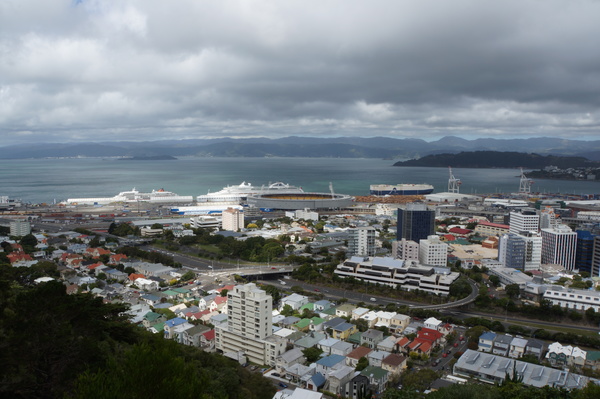
When it comes to tech companies, Wellington is primarily a city of consulting firms. The majority of businesses contract their software and infrastructure to companies like Fronde, Datacom, Catalyst, Solnet and others. A lot of government, education and telecommunication work is contracted out to these big firms, and as a consequence, those companies suck up a lot of talent. Although many companies do have their own IT staff, they are small in comparison.
It’s not uncommon for multiple consulting companies to work on the same product for a customer. When I worked for Catalyst, I was on several projects for Spark (formerly Telecom NZ), in which we coordinated with Datacom to ensure we were using the same web templates, as both companies were working on different parts of the mobile website. The Ministry of Education hired both Catalyst and another company to handle different aspects of a platform designed for teachers.
I suspect one reason for this conglomeration is due to a starved talent pool. With such a limited population, there simply aren’t enough people for everyone’s software needs. In 2017, Wellington even funded a program to offer free trips for up to 100 foreign applicants seeking careers and job interviews within the city1.
These consulting firms allow projects to be more efficiently distributed to pools of engineers and designers, at the obvious expense of outsourcing costs. For the most part, this arrangement between various organizations and contracting companies works out fairly well. However, when it doesn’t, it can easily turn into a national disaster. An example from 2012, the New Zealand government hired Talent2 to work on a new payroll system for people in the education sector. Failures in the software led to many educators getting underpaid, overpaid or not at all. Software issues led to privacy leaks, and a number of bizarre software bugs.
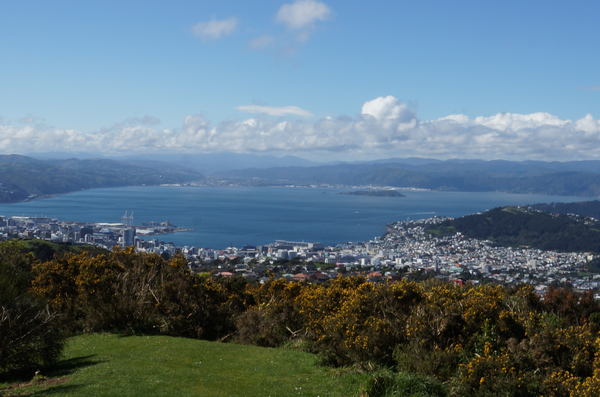
This isn’t to say everything is contracted out in New Zealand or that it lacks a startup culture. A number of mobile game startups are based in Wellington, such as Pikpok, the studio behind many of the Adult Swim mobile games. Kim Dotcom’s Mega is based out of New Zealand, as is the accounting software company Xero and the augmented reality startup 8i. Hollywood also has a large stake in New Zealand, with much of their animation and sound stage work contracted out to Weta Digital.
Because so much work is concentrated in the big shops, working for the right company in Wellington can potentially mean working with some very talented people. I personally felt I worked with many excellent developers in the industry at the company I worked for; people who were greatly interested in software and technology. It was the type of environment where people could easily learn from each other. On the flip side, a bad shop could potentially drag people down into handling nothing but technical debt, a view I heard from many former Solnet employees who irreverently referred to their company as “Soul sucking net.” Despite the big players, Wellington and Sydney are still most likely the best locations to launch a startup in Oceania, due to their concentration of highly skilled tech talent; the type of people who are willing to work on bleeding edge and rewarding projects.
Seattle, Washington
The tech market on the West Coast of America is very in demand. Within a month of searching for work, I had job offers in both Seattle, Washington and Sunnyvale, California. I ended up taking the job in Seattle and became involved in the area’s rich tech culture. Amazon is a dominant force in the city, followed closely by Microsoft. It’s impossible to go to an event, meetup or even board game night without running into a small cluster of employees from both companies. However, there are still many other companies and tech startups innovating on the West Coast.
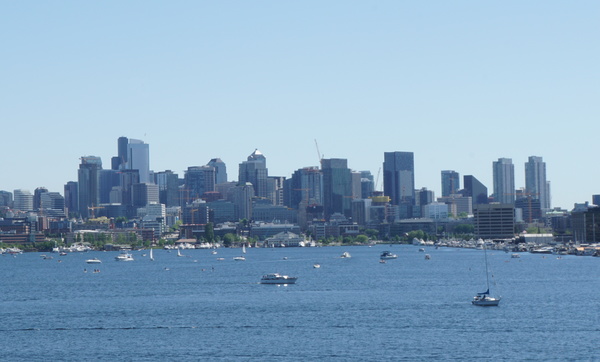
Cities like Seattle attract some of the best engineers in the industry. The calibre of people I worked with was, on average, far above any other company I had previously worked for. One of my coworkers mentioned how she worked for Real Media during the early tech boom, writing video codecs in C++. Another engineer I worked with had experience in Antarctica and had once been offered a job by NASA. Talking to other tech workers in the area seemed to indicate that the quality of processes and testing was a priority for their companies, both big and small.
Large numbers of talented engineers concentrated in a single city also tends to drive up wages. While this might seem like a good thing for people in tech, it also drives up housing demand for everyone. Although Seattle is a far cry from the crippling housing market around San Francisco, the situation is still not ideal. Seattle’s homeless situation has been in a continual state of crisis for several years. Housing anywhere near the city is far from affordable. New residents are often met with sticker shock, and are thankful if they can find a one bedroom for under $2,000 per month. In my year and a half in Seattle, I watched four new buildings filled with apartments rise within a few blocks of where I lived.
One of my close friends was a lawyer who grew up in Seattle. He pointed out punk houses in Belltown which used to go for $400 per month, complained about condos replacing historic fish packing plants and ranted about how the popular neighborhood of Capitol Hill used to be filled with car dealerships and auto service shops. On the North West side of town, Sloop Tavern still has mailboxes in its entryway that were historically rented out by fishermen to receive letters while serving long stints on the water. It’s a sign of the other industries that dominated Seattle at one time.
The fishermen brought work to the economy with all the supporting industry such as packing plants, shipping companies, hotels and restaurants. However the tech industry is different in the fact that its wages significantly outpace all the supporting industry. Tech workers can afford apartments on the light rail or within the city, whereas an employee at a Starbucks may only be able to afford a room in a location requiring a car or a long bus commute. As a result, the tech market makes it increasingly difficult for regular blue collar workers to maintain a decent standard of living.
With the huge influx of migrants, Seattle can often be seen as a cold city. Many residents talk about the Seattle freeze, a term referring to the difficulty many people encounter when trying to form friendships and relationships in the city. It never really gets cold in Seattle, but it also never really gets warm, both figuratively and literally. It’s a beautiful city filled with a lot of talented people and a rich tech job market, but it also has a lot of problems and social issues that makes it a difficult conundrum of a city to habitate.
If you can find a good shop, the West Cost in general can be a great place to gain experience with current technology trends and great engineers. Gaps in my resume were not a big issue in these markets, and I knew quite a few people who would often take time off, either to work on personal projects or to attempt startup ideas. One girl from a board game meetup I attended regularly, talked about how she supported her partner for several months, and now they were doing the reverse, each trying to get their personal projects off the ground. Another friend of mine in San Francisco with a background in hotel management took time off to launch an unsuccessful shoe startup.
The West Coast is generally a good environment for tech and for startups, although developing friendships and relationships in the Pacific Northwest can be rather challenging. The income inequality can be heartbreaking, and the tech market drives up housing prices in a way that can cause stress to people from all walks of life. My position in Seattle was the highest paying job I’ve ever held, and in the end I was able to form several deep and meaningful friendships. Still, I feel like leaving Seattle was me doing my part, in what insignificant way I could, to alleviate one resident from the overly stressed housing market and high costs of living.
Chicago, Illinois
Chicago has been, by far, one of the most bizarre tech markets I’ve ever experienced. I was able to find a job in about the same length of time it took me to find one in Wellington, but everything about interviews and recruitment was totally outside of what I’ve come to expect in my field. It’s the only market where I’ve had to walk away from job offers due to contract issues. When I bring these oddities up with potential employers or recruitment agencies, they are often perplexed and baffled, claiming to have never heard of these concerns before.
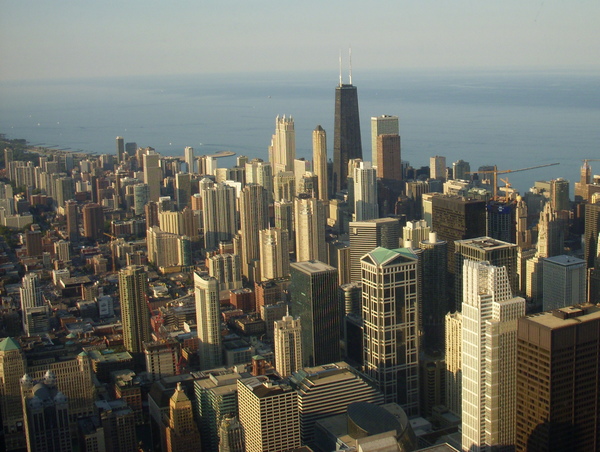
In Paul Graham’s famous post 18 Mistakes that Kill a Startup, a bad location is listed as the second biggest mistake. Chicago is explicitly included in his list of places where startups per capita is “too small to measure”. This isn’t a slight against Chicago, but more of an emphasis on the fact that much of the skill set is concentrated in places like Seattle and the Bay Area making, it difficult to find skilled engineers in other cities.
Chicago is a great city for finance. Where Seattle and The Bay Area are seen as the top two tech startup cities in the United States, so Chicago and New York City fall into the same category for the financial industry. It’s not surprising that many of the startups that do succeed in Chicago are tied to finance. Even for small shops that seem unrelated, talking to a director or CEO will often reveal that either their business model was originally finance related or their own start was connected to the stock market.
Chicago is filled with many single customer businesses and startups. By single customer, I mean between 70% to 80% of their revenue comes from a single source. These are often big source companies such as Proctor and Gamble, McDonalds, Wal-Mart, Amazon and others. Although all these companies claim they have other customers and are trying to expand their customer base, without their primary customer they would certainly be in trouble, if not right out collapse. They’re often treated as separate entities when, for all intents and purposes, they really should be subsidiaries of their primary customer. These types of businesses and startups exist in every city, but in Chicago, their number seems disproportionately high.
In Chicago, you rarely just meet a recruiter. If you meet a recruiter at their office, you will meet them and then everyone else in their office. Over half of the staffing agencies that contacted me operated in this manner. In every other city where I’ve had the unfortunate experience of using a recruiter to search for work, at least I only had to interact with one person from a given agency. Meeting recruiters in Chicago will take over an hour, and before you are let go from a phone call, they will ask you to hold as they ask if anyone else in their office has something to add. They are also perplexed when you explain to them that this is not normal behavior in any other market in the world.
In-person interviews in Chicago tend to be very long. They typically run over five hours, and I’ve never had an interview in the city that was under three. They are filled with behavioral questions, such as “Describe a time when you and a developer had a disagreement about a technology choice and how you resolved it,” or “Describe a time when you made a critical decision without getting approval from your manager.” The interviewer will want specific examples with details, and will drill down any vagueness.
I’ve been asked behavioral questions in other interviews, but nowhere near as many. I’ve also rarely ever asked these types of questions in interviews, as I’ve often focused on more technical aspects myself. In my experience, these questions are not very useful and generally just produce canned responses. A good interviewer can typically determine most of the behavioral traits of a candidate solely from how they respond during the technical interview.
Another thing that often came up during interviews in Chicago was the number of jobs I’ve held, the length of stay at each or my willingness to commit to a company long term. Tech has some of the highest turnover rates for full-time employees compared to other industries2, and these types of questions have never really come up for me before. Chicago has been experiencing population decline for years3, and I suspect Chicago businesses look for employees they can hold on to.
As I mentioned earlier, on the West Coast, the number of jobs listed on someone’s resume was rarely asked about. It was not uncommon for men and women to take a break from their careers to work on independent projects or their own startups. In Wellington, one developer had taken off to be a paramedic for two years before returning to the tech world. In a lot of cities, employers would want to hire these types of people as they have the potential to be innovative, creative and valuable. In Chicago, the apprehension towards hiring more free spirited people seems to be a potential red flag. It could indicate businesses have high amounts of technical debt or processes that are not well documented with high learning curves.
Chicago has been one of the oddest and most challenging markets I’ve ever attempted to enter into. It’s a very cold city with some very warm people and a tech sector heavily tied to roots in the financial markets. However despite that, it’s also an amazingly creative city. There are a lot of writers and writing meetups, as well as a rich comedy scene. Transportation is excellent and housing is affordable. There are some interesting tech startups and good demand in the market, however finding good tech work can be challenging and more involved than in other places in the United States.
Europe
I have not worked in the European market, but I have interviewed for companies in both Germany and The Netherlands, back during a long sabbatical and backpacking adventure. Due to my limited exposure, the only thing I feel can really comment on for certain are wages and salary expectations. An engineering postion that would go for $150k USD per year in Seattle or $200k per year in the Bay Area would most likely start around €55k per year in places like Berlin or Amsterdam, and typically max out around €60k ~ €70k.

This of course varies per company, city and the length of time working at a given shop. A number of Americans are often turned away from working in Europe once they see these salary figures4. Asking for American metropolitan wages will often result in our European counterparts experiencing sticker shock. To an American tech worker, Europeans may seem underpaid, but this is totally the wrong way to look at the situation. An alternative view is that there is considerably less income inequality.
I was able to find fully furnished one bedroom units in Berlin next to major S-Bhan train lines for around €600 a month. That’s a far cry from a $2,000 USD unfurnished one bedroom in Seattle or a $4,000 one bedroom in the Bay Area. A work visa in many European countries also entitles people to participate in the public health care system. Cities in Europe traditionally have better transportation infrastructure such as trains, buses and trams.
If Europe is any indication, it’s that American tech workers tend to be incredibly overpaid. Rising wages and housing demand drive up living costs, to the point where low income workers struggle to to meet basic needs. Where many European countries provide many social services to reduce the burden on the poor, American’s has a failure of a health care system that charges more for medical care to those who can least afford it.
Melbourne, Australia
Finding work in Melbourne was incredibly easy. I was able to pull two contracts off of Gumtree, an Australia website similar to Craigslist. Melboune has been ranked The Most Livable City in the World several times by the Economist Intelligence Unit (EIU)5, and it has the largest tram network in the world6. Housing was affordable, and although medical coverage wasn’t available on my Holiday Work Visa, the times I did have to pay for a doctor were incredibly reasonable; even more so than New Zealand. On my last visit to Melbourne, citizens were protesting Tony Abbott government’s attempt to impose doctor co-payments7. That’s right, Australian citizens at that time didn’t even pay for basic doctor’s visit.
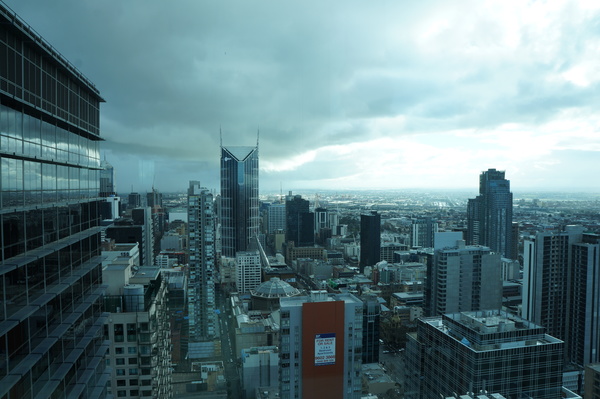
Melbourne just had a general vibe of being a relaxed city. I went to several meetups both inside and outside my field, including several at the Inspire 9 co-working space in Richmond. With the good social and transport infrastructures, it’s much easier to pick up contracts and jobs without worrying about having basic needs being taken care of. I met one woman who turned some of her contract work into a full scale Accessibility Engineering company. She was taking both private and government work, with so many contracts coming in that it was difficult to find employees to take all of it.
I felt Melbourne was overall a good place for tech. Although Sydney is often though of as the startup city in Oceania, there still seemed to be a lot of opportunities in Melbourne. The excellent infrastructure and social services provide a great foundation for working for oneself or attempting a startup, yet there isn’t a shortage of full-time work either. The city center itself has seen an explosion of building construction and commercial expansion, and many of their rail systems allow for easy commutes to jobs in the greater Victoria area.
Grain of Salt
I realize comparing markets based on my work in Tennessee and Ohio to later careers brings up some serious issues. The largest, of course, being I moved from junior status to more senior roles, both in experience and salary. Candidates applying for more experienced positions may be held to higher standards. However, I still feel the basics of the interview process haven’t really changed that much from when I first started out.
Every market is different and every job is different. Even in the same markets, personal experience varies heavily. You may have worked in many of these same markets and experienced something entirely different from what I described. I’ll admit much of my data is anecdotal and based off what I’ve seen. With that being said, I try to stay active in tech communities. I’ve gone to a lot of meetups, volunteered to present at many of them, and talked to people across my industry in all the cities I’ve worked in. Although I’m leveraging my experience, I’m also drawing on stories from the communities I participate in. Your mileage may vary.
-
New Zealand Will Give You a Free Trip If You Agree to a Job Interview. 28 February 2017. Rizzo. Money. ↩
-
Tech companies have highest turnover rate. TechRepublic. Retrieved on 14 March 2018. ↩
-
Chicago area leads U.S. in population loss, sees drop for 2nd year in a row. 23 March 2017. Eltagouri and Wong. Chicago Tribune. ↩
-
Are software engineers salaries in Europe lower than in the USA? How come they are so low in the West?. 26 Dec 2016. ↩
-
Melbourne ranked world’s most liveable city for sixth consecutive year by EIU. 18 Augest 2016. Wright. ABC News. ↩
-
Melbourne Metropolitan Trains. Urbanrail. Retrieved 30 March 2018. ↩
-
Hundreds rally against Medicare reforms and fees for GP visits. 15 Feb 2014. The Guardian. ↩